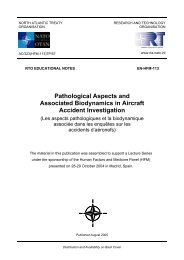DIAGNOZA SPOŁECZNA 2015
Diagnoza_raport_2015
Diagnoza_raport_2015
You also want an ePaper? Increase the reach of your titles
YUMPU automatically turns print PDFs into web optimized ePapers that Google loves.
Diagnoza społeczna <strong>2015</strong> 312<br />
Diener E., Suh E.M., Lucas R.E., Smith H.L. (1999). Subjective well-being: Three decades of progress.<br />
Psychological Bulletin, 125, 276-301.<br />
Easterlin R. A. (1974). Does economic growth improve the human lot? In P. A. David, M. W. Reder (eds.), Nations<br />
and households in economic growth. New York: Academic Press.<br />
Easterlin R. A. (1995). Will raising the incomes of all increase the happiness of all? Journal of Economic Behavior<br />
and Organization, 27, 35-47.<br />
Easterlin R. A.(2005). Building a better theory of well-being. W: L.Bruni, P. L. Porta (red.), Economics and<br />
happiness: framing the analysis (ss 29-65). Oxford: Oxford University Press.<br />
Eid M., Larsen R. J. (red.) (2008). The science of subjective well-being. New York: The Guilford Press.<br />
Ellison C. G. (1991). Religious involvement and subjective well-being. Journal of Health and Social Behavior, 32,<br />
80-99.<br />
Festinger L. (1957). A theory of cognitive dissonance. Evanston: Row, Peterson.<br />
Graham, C., Eggers, A. and Sukhtankar, S. 2004. Does happiness pay? An initial exploration based on panel data<br />
from Russia. Journal of Economic Behavior and Organization, 55, 319–42.<br />
Haller, M., & Hadler, M. (2006). How social relations and structures can produce happiness and unhappiness: An<br />
international comparative analysis. Social Indicators Research, 75, 169–216.<br />
Hansen, T. (2012). Parenthood and happiness: A review of folk theories versus empirical evidence. Social Indicators<br />
Research, 108, 26–64. doi:10.1007/s11205-011-9865-y<br />
Harker, L. A., Keltner, D. (2001). Expressions of positive emotion in women’s college yearbook pictures and their<br />
relationship to personality and life outcomes across adulthood. Journal of Personality and Social Psychology,<br />
80, 112-124.<br />
Hobfoll S.E. (2001). The influence of culture, community, and the nest- uence of culture, community, and the<br />
nested-Self in the stress process: advancing conservation of resources theory. Appl. Psychol. Int. Rev.<br />
2001;50(3).<br />
Hobfoll S.E. (2006). Stres, kultura i społeczność. Psychologia i filozofia stresu. Sopot: Gdańskie Wydawnictwo<br />
Psychologiczne.<br />
Hoffman S.R., Stallings S.F., Bessinger R.C., Brooks G.T. (2013). Differences between health and ethical<br />
vegetarians. Strength of conviction, nutrition knowledge, dietary restriction, and duration of adherence,<br />
Appetite, 65, 139-144.<br />
Huang T., Yang B., Zheng J., Li G., et al. (2012)..Cardiovascular Disease Mortality and Cancer Incidence in<br />
Vegetarians: A Meta-Analysis and Systematic Review, Annals of Nutrition and Metabolism, 60, 233-240.<br />
DOI: 10.1159/000337301 [dostęp <strong>2015</strong>-10-20].<br />
Kahneman D. (1999). Objective happiness. W: D. Kahneman, E. Diener, N. Schwarz (red.), Well-being. The<br />
foundations of hedonic psychology (ss 3-25).New York: Russell Sage Foundation<br />
Kahneman, D., Diener D., Schwarz N. (red.) (1999). Well-being. The foundations of hedonic psychology. New<br />
York: Russell Sage Foundation<br />
Kasser T. (2002). The high price of materialism. Cambridge: The MIT Press.<br />
Kasser T., Ryan R.M. (1996). Further examining the American dream: Differential correlates of intrinsic and<br />
extrinsic goals. Personality and Social Psychology Bulletin, 22, 280-287.<br />
Kubey R., Csikszentmihaly M. (1990). Television and the Quality of Life: How Viewing Shapes Everyday<br />
Experience. Lawrence Erlbaum Associates,<br />
Kwok Ch.S., Umar S., Myint P.K., Mamas M.A. (2014). Vegetarian diet, Seventh Day Adventists and risk of<br />
cardiovascular mortality: A systematic review and meta-analysis, International Journal of Cardiology 176, 680-<br />
686.<br />
Lane R. (2000). The loss of happiness in market democracies. New Haven: Yale University Press.<br />
Lazarus R. S., Folkman S. (1984). Stress, appraisal, and coping. New York: Springer.<br />
Linley A., Joseph S. (red.) (2007). Psychologia pozytywna w praktyce. Warszawa: Wydawnictwo Naukowe PWN.<br />
Lopez S. J. (red.) (2009). The encyclopedia of positive psychology. Malden, MA: Blackwell Publishing.<br />
Machon D., Norton M.I., Ariely D. (2008). Getting off the hedonic treadmill, one step at a time: The impact of<br />
regular religious ptactice and exercise on well-being. Journal of Economic Psychology, 29, 632-642<br />
Margolis, R. & Myrskyla, M. (2011). A global perspective on happiness and fertility. Population and Development<br />
Review, 37, 29-56.<br />
Margolis, Rachel and Myrskylä, Mikko (<strong>2015</strong>) Parental well-being surrounding first birth as a determinant of further<br />
parity progression Demography, 52 (4). 1147-1166. ISSN 0070-3370.<br />
Marks G.N., Fleming N. (1999). Influences and consequences of well-being among Australian young people: 1980–<br />
1995. Social Indicators Research, 46, 301–323.<br />
Marsh K., Zeuschner C., Saunders A. (2012). Health Implications of a Vegetarian Diet A Review, American Journal<br />
of Lifestyle Medicine, 6, 250-267.<br />
Maslow A. (1986). W stronę psychologii istnienia. Warszawa: Pax.<br />
Maslow A. (1990). Motywacja i osobowość. Warszawa: Pax.<br />
McLanahan, S. & Adams, J. (1989). The effects of children on adults’ psychological well-being: 1957-1976. Social<br />
Forces, 68, 124-146.<br />
© Rada Monitoringu Społecznego





